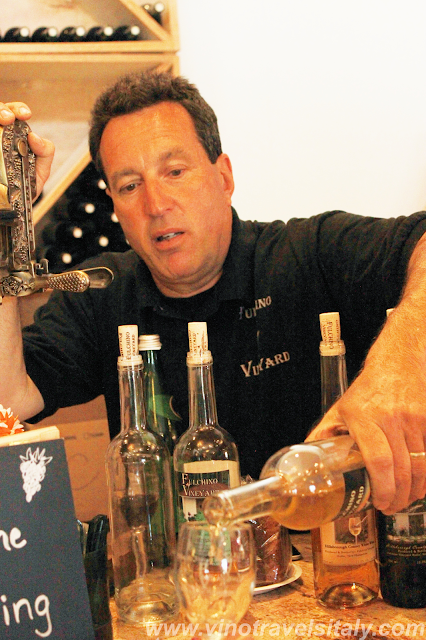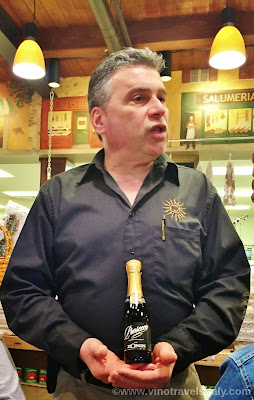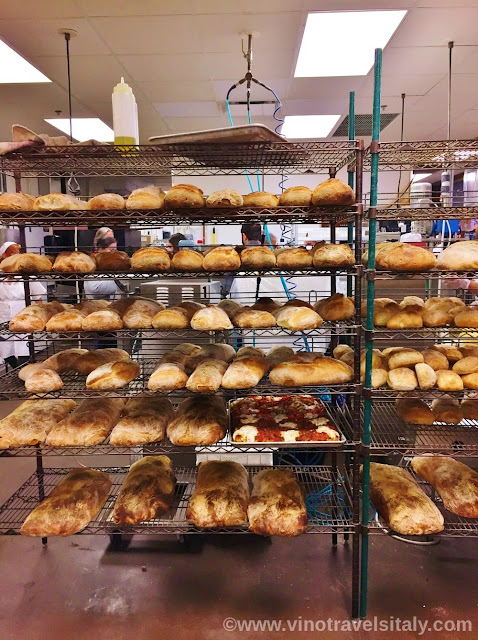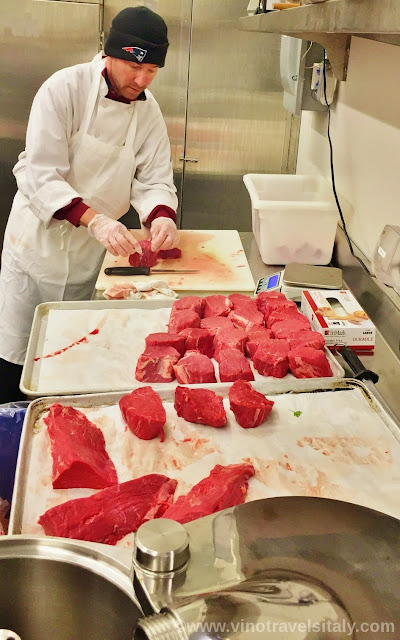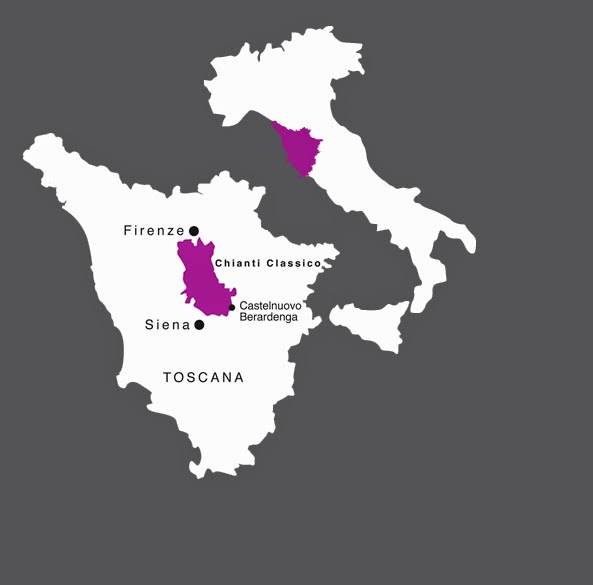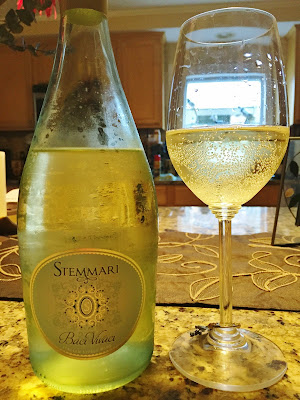One of my goals this year is to explore
Italian grapes in the US and I've come across a number of wineries
that I'm in contact with to speak with them about their growing
methods and how their soils and climates differ as well as the wines
they produce from those that they originate from in Italy.
I recently interviewed Al Fulchino, the
owner of a local winery in New Hampshire called, Fulchino Vineyards.
My feature of Fulchino Vineyards was featured this past week on my
column, “Italy Uncorked” in the Bostoniano magazine where you can
get a history of Al's Italian roots and heritage and how he came
about producing wine in NH.
 Al grows about 85% of his own grapes on
his land in Hollis, NH, but does import some Italian grapes from
Italy including montepulciano grapes from the central region of
Abruzzo as well as the lagrein grape from the Trentino-Alto Adige
region of northern Italy. Granted, the terroirs along with certain
elements of the actual winemaking and aging process are what make the
wines unique so it's no wonder that US wineries that are
experimenting with indigenous Italian varietals from Italy are making
styles different than what you may be used to. The selection of
specific varietals that these wineries and winemakers choose in
comparison to what they think they are capable of producing to
produce a somewhat “true style” of how that grape is expressed is
what I find intriguing.
Al grows about 85% of his own grapes on
his land in Hollis, NH, but does import some Italian grapes from
Italy including montepulciano grapes from the central region of
Abruzzo as well as the lagrein grape from the Trentino-Alto Adige
region of northern Italy. Granted, the terroirs along with certain
elements of the actual winemaking and aging process are what make the
wines unique so it's no wonder that US wineries that are
experimenting with indigenous Italian varietals from Italy are making
styles different than what you may be used to. The selection of
specific varietals that these wineries and winemakers choose in
comparison to what they think they are capable of producing to
produce a somewhat “true style” of how that grape is expressed is
what I find intriguing. 
Al Fulchino chose lagrein and montepulciano grapes because these are the grapes that his family experimented with in making wine. Since lagrein is a grape that isn't well known in the public eye I asked Al why lagrein in particular? Outside the reason of his history within his family with the lagrein grape, overall Al is satisfied with the results of the wine produced with lagrein in the long term. His biggest issue with it is that in its youth it lacks the qualities he looks forward to in the end result. When presenting to customers its difficult to demonstrate the potential of this grape in the long term.
Al's family originates from Campania
and next Saturday June 6th for our Italian Food, Wine and
Travel group #ItalianFWT we will be featuring Campania this month
with a group of bloggers sharing all their wonderful experiences and
recipes and wines.
Make sure to check back next week with a preview
earlier in the week for a sampling of what's to come. You can join
us live on twitter Saturday June 6th at 11am EST and chat
with us. We'd love to hear your story and experiences too!
 |
| Original wine basket for the wine press of Al's grandfather |

